Is there a link between brain attacks and blood clots and eating a lot of oil?
I use personal experience to tell you, eat more oil, and brain infarction cerebral thrombosis, absolutely have a relationship. I am fifty-one years old this year, not old, not small. Previously, the body is particularly careless; the biggest problem, can not control the mouth, love to eat, love to eat meat, love to eat more oil dishes. Since I was a child, my mom has nicknamed me "greasy mouth dog".
Last June, something finally happened to the body.
One day, at six o'clock in the morning, lying in bed, I suddenly woke up with a dizzy spell, and for the next whole hour or so, my eyes didn't dare to open, and as soon as I did so, I saw that the sky was falling down, and the earth was spinning upwards, in alternating cycles.
I closed my eyes hard while opening my mouth to spit out all the contents of my stomach. At that time, really thought, this is afraid to go away. Called 120, pulled to the hospital. MRI, coronary angiography, found that the heart has a few blood vessels, especially fine, and plaque inside the blood vessels. Should be a slight blockage.
The doctor said that there are many causes of the disease and that it should be treated slowly. However, after careful consideration and comparison, I realized that in the past two years, especially this year, I have added two "hobbies" that I never had in the past, which should have a great deal to do with this illness.
These two hobbies are related to "oil". It can be said that both are "death".
The first hobby, eating pine nuts. They were imported from Brazil, extra large and easy to peel like melon seeds, in a bag the size of an A4 sheet of paper, with one or two dozen sachets inside. I was watching TV and eating them. It was so delicious that I even told my family, "What a joy! I'm going to eat them forever!"
In less than six months before and after this year, I actually ate a dozen large bags. Pine nuts, how much fat. Which is eating pine nuts, is clearly a mouthful of oil dripping into the stomach.
The second hobby, eating hot pot. Eating hot pot is common, not many dare to put a few pounds of butter, right?
It's really spooky. Once, when I swiped Jitterbug and saw someone copper pot shabu-shabu, I got a craving and bought a copper hot pot online as well.
I remember the first time I had it, the butter base, I thought it was low on oil. I went to Dongguan and bought a lot more to put in. After that meal, the leftover hot pot, poured into the iron sieve, filtered out the oil and water, and so on the top of the butter cooled, the solidified pieces, pry down, put in the refrigerator, the next meal to eat hot pot, and then put in. Thinking, anyway, is eaten by the family, is not unhygienic.
Good guy, week after week, save more and more butter, put more butter, more than water, hot pot flavor, more and more fragrant, eat more and more often. At most, eat three times a week. Eat almost a year of weather, I do not know whether the blood vessels blocked, anyway, the weight has grown more than ten kilograms.
A fat man is a man with a hundred diseases. Hospitalization and surgery, it is also logical. Now, I don't dare to eat a single pine nut anymore. Hot pot, basically quit. Greasy, usually eat as little as possible.
Think about it can understand, long-term large amount of eating oil, cholesterol and fatty acids, can not be more. In the long run, hardening of the arteries, the formation of blood clots, causing blood vessel blockage, causing cerebral infarction heart attack, and what is so strange.
Patients who have had a cerebral infarction should not eat lard, because lard contains a lot of substances that are not conducive to cerebrovascular disease, and it contains a lot of cholesterol and saturated fatty acids, which will aggravate the patient's blood lipids, leading to the aggravation of the patient's arteriosclerosis, which will easily lead to the formation of cerebral blood clots. The dietary principle of cerebral infarction is a low-salt, low-fat and low-sugar diet to avoid aggravating the degree of cerebral arteriosclerosis. It is recommended that patients eat more fresh vegetables and fruits, meat can also be appropriate to eat, but to lean meat-based, usually do not eat animal offal, animal oil, do not eat fried food. Patients can eat more food containing unsaturated fatty acids, which can reduce the content of cholesterol in the blood, and also pay attention to limiting smoking and alcohol in the lifestyle, to start the secondary prevention of cerebrovascular disease.
(I'm Luo Min, chief physician of a Grade 3A hospital, with more than 30 years of clinical experience in the first line of work of the "old" doctors, my efforts only to harvest everyone's approval, if my answer can help you, I hope you can like, attention, if you have any questions, you can comment or private message me, I will try to help everyone!)

Yes!
Cerebral infarction and cerebral thrombosis are both ischemic strokes among cerebrovascular accidents. Cerebral thrombosis is caused by atherosclerosis and thrombosis in the cerebral arterial system, resulting in narrowing or occlusion of the arterial lumen. Cerebral infarction, on the other hand, includes cerebral thrombosis as well as cerebral embolism, which is tethered to the heart, lungs, and rheumatic heart disease, mitral stenosis, and coronary arteriosclerosis.
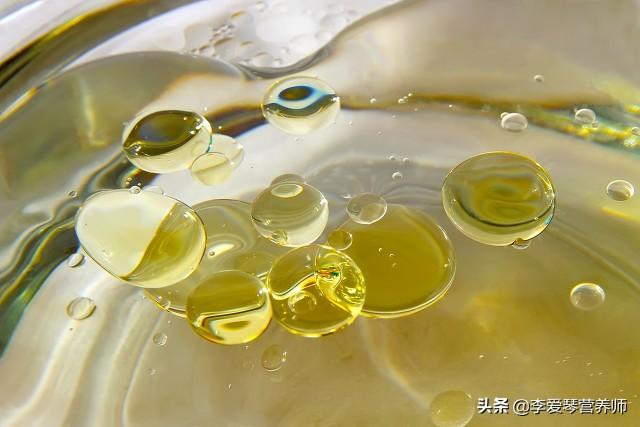
The main risk factors for cerebral infarction and cerebral thrombosis are high blood pressure, dyslipidemia, heart disease, diabetes mellitus, and smoking and alcohol consumption. And the amount and type of cooking oil has an effect on blood lipids and blood pressure, come to find out:.
Recognizing Fats and Oils.
The cooking oils that people consume on a daily basis include vegetable oils and animal fats, which have different health effects because of the different types of fatty acids in the two. Overall animal fats are good for saturated fats and cholesterol, so, eat them sparingly.
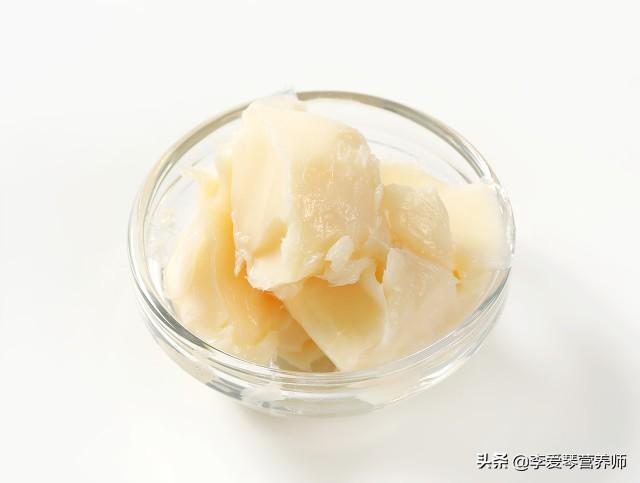
(i) Animal fats and oils
For example, in lard, suet and butter, which are mainly rich in saturated fatty acids, lard contains 43% saturated fatty acids, suet 57% and butter 62%.
Saturated fatty acids can significantly elevate plasma TC levels and LDL-C levels, and meat oils are high-energy, high-fat foods, excessive consumption of which can cause obesity and aggravate atherosclerosis. Dietary saturated fatty acids are the main fatty acids that increase serum cholesterol.
Thus, excessive consumption of animal oils (meat oils) affects cerebral infarcts cerebral thrombosis through hypercholesterolemia as well as elevated high-density fat white.
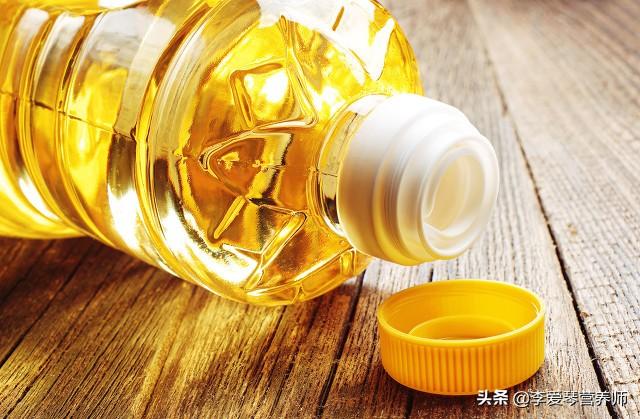
(ii) Vegetable oils and fats
Vegetable oils and fats of different types of fatty acid content also varies, mainly unsaturated fatty acids, saturated fatty acid content is generally between 10% -24%. Although some vegetable oils such as linolenic acid and linoleic acid rich in n-3, n-9 series can regulate blood lipids as well as improve blood circulation, inhibit platelet aggregation, inhibit atherosclerotic plaque drinking thrombus formation, but also eat more, saturated fatty acid intake ratio increases, the same will affect blood lipids, as well as easy to cause obesity.
Therefore, the intake of vegetable oils should not be excessive, keeping it at 30 grams per day. It's best to switch it up.
In summary, there is still a link between eating too much oil and cerebral infarction cerebral thrombosis.
And the weather has something to do with, the climate of the northeast is too cold in winter, the coldest days are more than thirty degrees below zero, so people with cerebral infarction is particularly high. My family used to live in a cottage, the house is not insulated, the water in the basin in the morning is frozen, and the orchids are frozen to death. That was the year my husband had a brain infarction. Luckily, he was found in time and was put on an IV drip in the hospital for a week. Since then, he has been wearing a hat when he sleeps at night. There is also a power company workers, minus 40 degrees when, outside the repair line, working all day and night, frozen out of the brain infarction to the hospital did not rescue died.
What is a cerebral thrombosis?
Cerebral thrombosis refers to the formation of plaque after atherosclerosis of carotid artery and intracranial cerebral artery, and the formation of thrombus after the rupture of the plaque, and the blockage of thrombus in the cerebral blood vessel leading to ischemia, hypoxia and necrosis of brain tissues is cerebral infarction.
Is a cerebral infarction a blood clot in the brain?
Cerebral infarction includes cerebral thrombosis, cerebral embolism and other secondary factors leading to cerebral infarction. Patients with atrial fibrillation, atrial mucinoma, rheumatic cardiomyopathy, or myocardial infarction may have a thrombus attached to the wall of the heart, which may fall off and travel with the bloodstream to the brain, forming a cerebral embolism.

What are the signs of a cerebral infarction?
Patients see things blurred, vision changes, slurred speech, choking on food and water, mental retardation, walking abnormally unsteady, numbness of the limbs with abnormal deviation sensation, vertigo and so on.
If a cerebral infarction occurs in a small lesion or in a functional area that is not very important, it may not be clinically apparent, but CT or MRI examination may reveal lacunar infarcts, white matter demyelination, etc.

The presence of unhealthy oils and their relation to cerebral infarction
Diets that are too oily including frying with added oil and fatty foods contain high levels of saturated fatty acids and trans fatty acids. Studies have confirmed that a high intake of trans fatty acids elevates blood lipids and increases the risk of atherosclerosis. Trans fatty acids are hidden in foods such as fried foods, margarine for French fries and potato chips, margarine, shortening, margarine, coffee mate, western pastries, cocoa butter and other foods.
Saturated fatty acids are found in fatty meats, animal offal, fats from animals such as cows, sheep and pigs, and vegetable oils such as coconut oil, cocoa butter and palm oil.
Excessive consumption of not only high oil, but also high salt and high sugar will increase the risk of hypertension, high blood fat, diabetes, atherosclerosis and cerebral infarction.
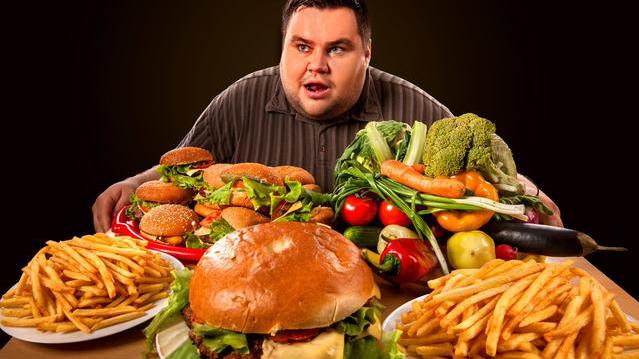
High oil, sugar and salt can induce hypertension, hyperlipidemia and diabetes, and atherosclerotic plaque
Is there a link between brain attacks and blood clots and eating a lot of oil?
This question depends on what kind of doctor you are answering, the answer from a Western doctor is different from the answer from a Chinese doctor.
As a Western medical doctor, his answer must be that it has a lot to do with eating a lot of oil, and it has a direct relationship, why? Because the formation of blood clots, a large part of the blood clots is due to high blood fat, high cholesterol, high triglycerides, these three highs are the direct cause of the formation of blood clots, and the source of these three highs are all directly related to eating oil. So in his medical advice, it is for the patient not to eat excessively oily foods.
As a Chinese medicine practitioner, the perception is very different from that of a Western medicine practitioner, it is very different. Chinese medicine believes that the patient's yin and yang is out of balance, can't constrain each other, the root cause is not that the patient eats too much oil, it is because the fats and oils that we eat, can't be effectively synthesized, utilized and decomposed, which is the constraints that can't be constrained, and becomes redundant, it is the factories of our body that are out of balance, synthetic factories that are mass-producing, produce goods that can't be utilized in their entirety, and the redundant goods, again, can't be decomposed, so they are precipitated and form plaque deposits. The synthetic factory produces a large amount of goods, which cannot be fully utilized, and the excess goods, which cannot be broken down, are thus precipitated, forming plaque deposits. This is a problem with our bodily functions, the yin and yang are not harmonized, not because of eating too much oil. Why is it that many people are fine with eating large quantities of oil and eating large quantities of meat? I have seen those Sichuan migrant workers who have made great efforts to eat a meal without eating large amounts of oil and meat, they feel that their bodies have no energy and they cannot do heavy physical work. There are also those people in Inner Mongolia and Xinjiang who eat large quantities of meat and oil every day, but on the contrary, they do not get sick a lot? Some seemingly very reasonable explanations are in fact untenable on second thought, and they are some sophistry.
Our body's tissues, organs and internal organs, are all constraints on each other and promote each other. Each link is a necessary condition for its existence, are not isolated, are complementary. Otherwise, only growth factors, no growth inhibiting factors, that people are not up to break the sky? Only synthetic factors, no decomposition factors, that's not good enough?
Therefore, the formation of cerebral infarction and thrombosis is not the cause of eating oil, it is that the yin and yang in our body are not balanced, and cannot restrain and break down fats and oils, and there is something wrong with the inner part of the body.
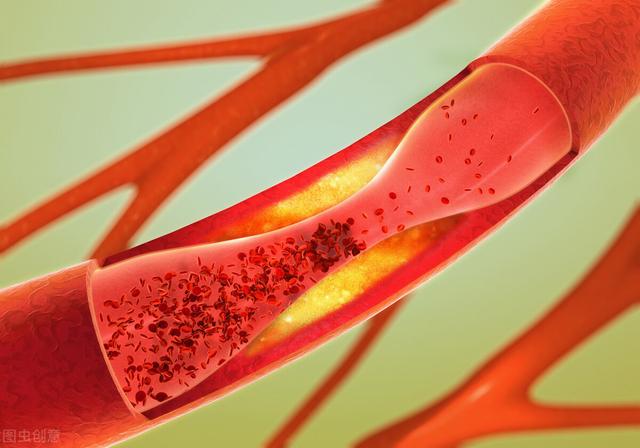
infarction
I guess the question of the subject is is there a relationship between cerebral infarction, cerebral arterial thrombosis and eating a lot of oil?
Cerebral thrombosis can be a pre-cerebral infarction, and the causes can include hypertension, atherosclerosis, hyperlipidemia, atrial fibrillation, cardiac thrombosis, and even lupus erythematosus, rheumatic diseases, syphilis, and other diseases that can cause inflammation of the arteries, and prolonged late-night stays and stressful events can be triggered.
Eating a lot of oil can cause atherosclerosis, high blood fat, high blood pressure, etc., of course, with cerebral infarction cerebral thrombosis.
Eating too much of anything is not good for your health! Nutritional balance, light diet, coarse and fine mix, appropriate exercise, sleep enough, to ensure your health!
My father had a brain infarction and just got out of the hospital. Luckily, it was a small infarction, so it should not be a big problem if he goes home to take care of it.
Since my dad got sick, I was wondering what caused the brain infarction. First of all, looking at his habits, he has to go meatless at every meal, and if any meal doesn't have meat, he will boil a ladle of vegetable oil and pour it over the top of the rice, which he says is very flavorful to eat that way.
Another thing is that he is good at drinking and smoking, and the main thing is that he is very short-tempered. Sometimes he can be furious over a word or a small thing.
So it's true that lifestyle habits, and emotional states really do have so much impact on our health.
There is a strong relationship between cerebral infarction and a liking for fatty foods. The main factors of cerebral infarction are: hypertension, coronary heart disease, diabetes mellitus, overweight, hyperlipidemia, fondness of fatty foods, and many patients have family history.
This question and answer are from the site users, does not represent the position of the site, such as infringement, please contact the administrator to delete.